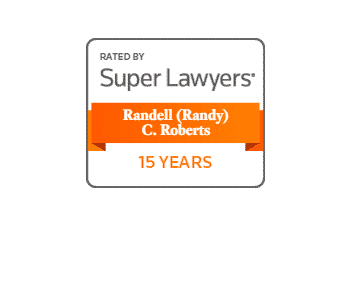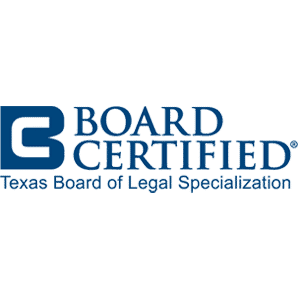Toyota Woes Put Focus on Black Box
Auto Maker Says Its Data Recorder May Not Help in Reconstructing Accident
By Dionne Searcey and Kate Linebaugh
Published by The Wall Street Journal
The safety problems that have engulfed Toyota Motor Corp. are focusing renewed attention on one of the most controversial components in an automobile: the black box.
The box, officially called an “event data recorder,” is a small, square, virtually indestructible container akin to those found on commercial airplanes. Tucked inside the dash or under the front seats of most newer vehicles, it records vehicle and engine speeds as well as brake, accelerator and throttle positions and other data that can help determine the causes of accidents.
Now, lawyers and safety advocates are stepping up efforts to get access to the data stored inside the Japanese auto maker’s vehicles, in hopes it will shed light on what could be causing several Toyota models to speed up suddenly, an issue that has sparked the recall of millions of vehicles and has been blamed for multiple fatal accidents. U.S. highway-safety officials said Monday they were reviewing nine new cases of fatal crashes, involving 13 deaths, potentially linked to Toyotas that may have speed up unintentionally.
Plaintiffs’ lawyers and their clients in auto-accident cases say they have butted heads with Toyota over access to its black-box data, or have gotten data from the company that sheds little light on the causes of the crashes at issue. Among the problems they encounter is that only Toyota can read the black-box information in its vehicles, and it says it only makes the data available when requested to do so by law enforcement, federal regulators or by court order.
By contrast, the three Detroit auto makers have black-box formats that can be read without their involvement using commercially available tools.
Police and lawyers say Toyota sometimes fights their efforts to use black-box data to reconstruct accidents, in part because the company says the data it retrieves from the boxes may not be useful in accident reconstruction and has contained errors.
The device is a prototype and “is still experimental,” said Toyota spokesman Mike Michels. “We have found anomalies in the data that are part of our development of the system. It is our position that it is not reliable for accident reconstruction.”
Safety regulators also cast some doubt on the value of black-box data in determining the cause of an accident. The recorders “are of limited value in crash investigations because they record only a few parameters and only in the last couple of seconds prior to a crash,” said a Transportation Department official.
U.S. auto makers General Motors Co., Ford Motor Co. and Chrysler Group LLC have provided their black-box data formats to Bosch Diagnostics, a unit of German auto supplier Robert Bosch GmbH that makes tools that download crash logs from vehicles made by those auto makers. Those tools are widely used by police, crash investigators and attorneys, and the auto makers don’t question the accuracy of the data retrieved with them.
Licensing the data formats to allow a third party to make to retrieve black-box data “is an efficient means of facilitating direct access” by government agencies, such as safety regulators and law enforcement, GM spokesman Alan Adler said in an email.
Richard Ruth, a safety and black-box expert who worked at Ford for 33 years, said making the data accessible to investigators and law-enforcement officers often works to the benefit of auto makers. “In some cases, the data works against the auto maker, but in the vast majority of cases it is helping to take out fraudulent and trumped-up claims” in lawsuits, he said.
Toyota, like Japanese peers Honda Motor Co. and Nissan Motor Co., has a proprietary black-box system, and it says the data it collects isn’t intended or capable of accident reconstruction because it is only recorded for a short duration—about one second. The system mainly monitors the performance of a vehicle’s safety devices, such as air bags, seat belts and, in some cases, throttle application. Toyota says there is no rule or legislation that requires otherwise until a new NHTSA rule comes into effect later in the decade.
Police in Auburn, N.Y., have asked Toyota to try to recover data from the black box in a 2010 Toyota Camry, hoping to shed light on the cause of a fatal accident on Nov. 27. According to police, 55-year-old Barbara A. Kraushaar drove through three downtown stoplights at high speed and crashed into another vehicle, killing its driver, Colleen Trousdale. Police say Ms. Kraushaar, who survived the accident, may have had a stroke.
Ms. Kraushaar later told officers it was like the car had a mind of its own, prompting them to further investigate whether sudden acceleration may have played a role.
Getting data from the black box is “the last key to the puzzle,” said Auburn Police Lt. Shawn Butler.
According to the Auburn police, an investigator from the National Highway Traffic Safety Administration arrived in town and took the Camry’s data recorder, saying he planned to take it to California, where Toyota has its U.S. headquarters, so their expert could download the data, along with that from several other black boxes from crashes across the nation.
NHTSA didn’t reply to requests for comment on the Auburn incident.
Lt. Butler said he is concerned that Toyota, which could potentially be at fault in the accident, is the only party able to read the data. “We’re at their mercy, and it doesn’t give you a good feeling,” he said.
The auto industry’s use of electronic data recorders began in the early 1990s to record the conditions in cars before air bags deployed. Their use has been expanded in the past decade, and they now collect a wider variety of data.
The most-advanced recorders can present a picture of how a car is operating in the last five seconds before a crash, and help auto makers understand how their vehicles operate on the road in the absence of mechanical evidence. As auto makers added more and more electronics to control brakes, steering, gas pedals and other key components, some of the systems were improved to help monitor those controls in the seconds surrounding impact.
In 2006, NHTSA set black-box standards and issued a rule that if a manufacturer equips a vehicle with a black box, then it must also make available to car owners the tools to download and read the data. Auto makers have pushed back the implementation of the rule by one year to Sept. 1, 2012, the start of the 2013 model year. And the Alliance of Automobile Manufacturers, an industry trade group that includes Toyota, last year requested another one-year delay, citing the adverse economic climate.
Toyota says it intends to comply with the rule.
Toyota now is under intense scrutiny because of complaints that its cars can have a tendency to accelerate without the driver hitting the gas pedal. The issue forced the company to recall six million vehicles in the U.S. to fix two potential causes. One recall involves thick rubber floor mats that can catch on the gas pedal and hold it down; the other involves the gas pedal itself, which can get stuck or let up slowly under certain conditions.
Sudden acceleration is suspected as the cause in several fatal accidents involving Toyotas, and some plaintiffs’ attorneys in those cases are seeking access to the vehicles’ black boxes.
In 2007, Bulent Ezal was pulling into the parking lot of a cliffside restaurant in Pismo Beach, Calif., when his 2005 Camry surged, went over the bluff and crashed on rocks 70 feet below. Mr. Ezal, 75, survived, but his wife, who was in the passenger seat, was killed.
“The car took off with force, pushing me back into my seat and cleared the curb,” Mr. Ezal said in a recent interview. “The last thing I remember is my wife screaming, and I was looking at the clear blue sky.”
Police could find no mechanical fault, and so concluded Mr. Ezal must have been to blame, said Donald Slavik, an attorney representing Mr. Ezal in a 2007 lawsuit filed against Toyota in California state court in San Luis Obispo. Mr. Slavik said he has been trying to get data from the car’s black box for nearly three years. He said Toyota would provide the data only if Mr. Slavik got a court to order the company to do so. Mr. Slavik said Toyota has since told him the data in the black box would be unusable.
On one recent occasion, Toyota retrieved black-box data from a car involved in a fatal crash, but law-enforcement officers said the information was inconclusive.
On Dec. 26, Monty Hardy, 56, was driving three passengers in his 2008 Toyota Avalon on Lonesome Dove Drive in Southlake, Texas, when the car ran through a stop sign at about 45 mile per hour, crashed through a fence, struck a tree and landed upside down in a pond, according to a police report. All four occupants were killed.
Mr. Hardy was on medication for epilepsy but had been cleared by his doctors to drive. His autopsy didn’t indicate he had suffered a seizure. Randy Roberts, an attorney hired by Mr. Hardy’s wife, Linda, said the Hardys had taken the car to their Toyota dealer before the crash to complain about the car accelerating suddenly.
After the crash, investigators from NHTSA and Toyota’s black-box expert flew to Texas to join police in searching for the cause of the accident. They found the black box in the car covered in muck from the pond.
According to police reports, the Toyota investigator tapped into the box and said the only data it contained was the difference in the speed of the car immediately before and after hitting the fence and the tree.
“I don’t believe it for one minute,” said Mr. Roberts, the attorney.
Mr. Michels, the Toyota spokesman, confirmed a Toyota representative did download the data in the Southlake crash and said he didn’t know whether the data were usable. He declined to comment further because the investigation is continuing.









